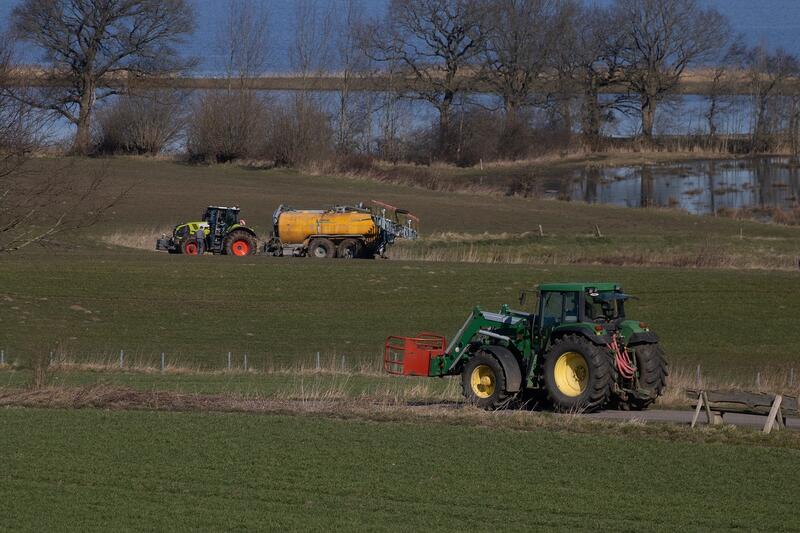Strategies to Achieve Decarbonization in Manufacture of general-purpose machinery
This article explores various strategies that can be employed to achieve decarbonization in the manufacture of general-purpose machinery, highlighting their benefits and challenges.

Decarbonisation refers to the reduction of carbon emissions in various sectors of the economy, including the manufacture of general-purpose machinery. This is an important process because carbon emissions contribute significantly to global warming, which has adverse effects on the environment and human health. The manufacture of general-purpose machinery is a significant contributor to carbon emissions, and therefore, decarbonisation is crucial in reducing the impact of this sector on the environment. This article explores the sources of carbon emissions in the manufacture of general-purpose machinery, ways of reducing carbon emissions, challenges facing decarbonisation, and the implications of decarbonisation for the sector.
Sources of Carbon Emissions in the Manufacture of General-Purpose Machinery
The manufacture of general-purpose machinery involves various processes that emit carbon dioxide and other greenhouse gases. These emissions can be categorized into direct and indirect emissions. Direct emissions refer to emissions that occur within the manufacturing facility, such as emissions from combustion of fossil fuels in boilers, furnaces, and other equipment. Indirect emissions, on the other hand, refer to emissions that occur outside the manufacturing facility, such as emissions from the generation of electricity used in the manufacturing process.
The main sources of carbon emissions in the manufacture of general-purpose machinery include energy consumption, material production, and transportation. Energy consumption is the largest contributor to carbon emissions in this sector, accounting for about 50% of total emissions. This is because the manufacturing process requires a significant amount of energy to power machinery and equipment. Fossil fuels such as coal, oil, and natural gas are the primary sources of energy used in the manufacturing process, and their combustion emits carbon dioxide.
Material production is another significant source of carbon emissions in the manufacture of general-purpose machinery. The production of raw materials such as steel and aluminum requires a significant amount of energy, which emits carbon dioxide. Additionally, the transportation of raw materials and finished products also contributes to carbon emissions. The transportation of raw materials to the manufacturing facility and the transportation of finished products to customers emit carbon dioxide from the combustion of fossil fuels in transportation vehicles.
Reducing Carbon Emissions in the Manufacture of General-Purpose Machinery
Reducing carbon emissions in the manufacture of general-purpose machinery is crucial in mitigating the impact of this sector on the environment. There are various ways of reducing carbon emissions in this sector, including:
- Energy Efficiency: Improving energy efficiency in the manufacturing process can significantly reduce carbon emissions. This can be achieved through the use of energy-efficient equipment and machinery, optimizing processes to reduce energy consumption, and implementing energy management systems.
- Renewable Energy: The use of renewable energy sources such as solar, wind, and hydropower can significantly reduce carbon emissions in the manufacturing process. This involves the installation of renewable energy systems to power machinery and equipment.
- Material Efficiency: Improving material efficiency in the manufacturing process can also reduce carbon emissions. This can be achieved through the use of recycled materials, reducing waste, and optimizing material use.
- Transportation Efficiency: Improving transportation efficiency can significantly reduce carbon emissions in the manufacture of general-purpose machinery. This involves the use of fuel-efficient vehicles, optimizing transportation routes, and reducing transportation distances.
Challenges Facing Decarbonisation in the Manufacture of General-Purpose Machinery
Decarbonisation in the manufacture of general-purpose machinery faces various challenges, including:
- Cost: Implementing decarbonisation measures can be costly, especially for small and medium-sized enterprises. The cost of renewable energy systems, energy-efficient equipment, and other measures can be prohibitive for some manufacturers.
- Technological Barriers: Some decarbonisation measures require advanced technology, which may not be readily available or affordable for some manufacturers.
- Lack of Awareness: Some manufacturers may not be aware of the benefits of decarbonisation or the available measures for reducing carbon emissions.
- Regulatory Barriers: Some regulations may hinder the adoption of decarbonisation measures, such as regulations that favor the use of fossil fuels or limit the use of renewable energy sources.
Implications of Decarbonisation for the Manufacture of General-Purpose Machinery Sector
Decarbonisation has significant implications for the manufacture of general-purpose machinery sector, including:
- Competitive Advantage: Manufacturers that adopt decarbonisation measures can gain a competitive advantage in the market. Consumers are becoming increasingly environmentally conscious, and companies that demonstrate a commitment to reducing carbon emissions may attract more customers.
- Cost Savings: Decarbonisation measures can lead to cost savings in the long run. Energy-efficient equipment and renewable energy systems can reduce energy costs, while material efficiency measures can reduce material costs.
- Regulatory Compliance: Decarbonisation measures can help manufacturers comply with environmental regulations and avoid penalties for non-compliance.
- Improved Reputation: Manufacturers that adopt decarbonisation measures can improve their reputation and brand image. This can lead to increased customer loyalty and improved relationships with stakeholders.
Conclusion
Decarbonisation in the manufacture of general-purpose machinery is crucial in reducing the impact of this sector on the environment. The main sources of carbon emissions in this sector include energy consumption, material production, and transportation. Decarbonisation measures such as energy efficiency, renewable energy, material efficiency, and transportation efficiency can significantly reduce carbon emissions. However, decarbonisation in this sector faces various challenges, including cost, technological barriers, lack of awareness, and regulatory barriers. The implications of decarbonisation for the sector include competitive advantage, cost savings, regulatory compliance, and improved reputation.